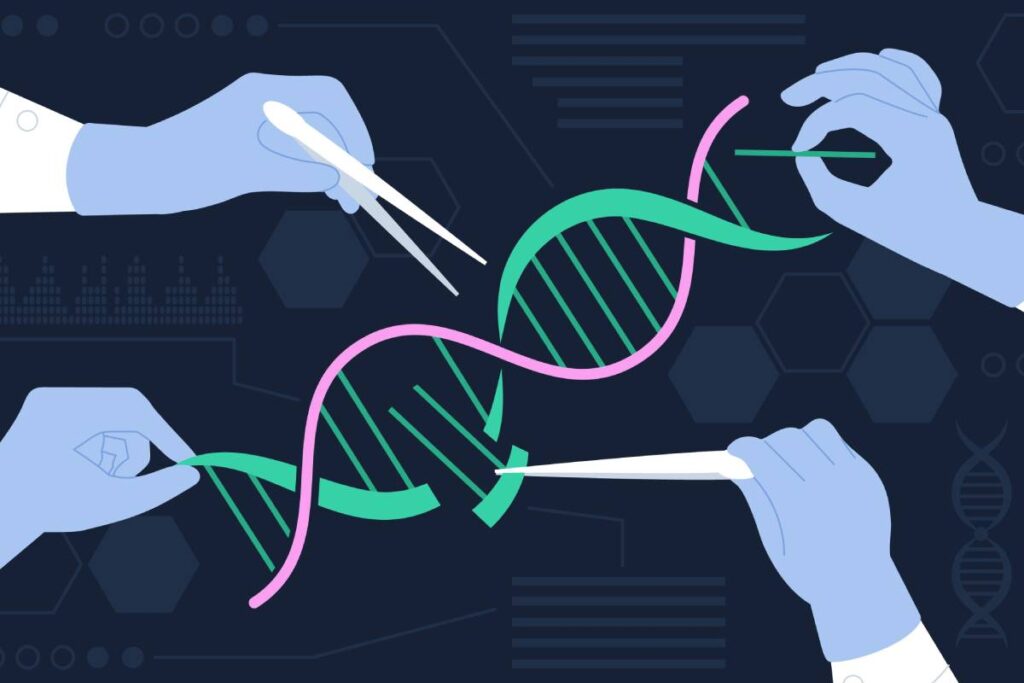Q&A Podcast: Cas-CLOVER Capable of Meeting Crop Improvement Challenges
This GENcast is the final installment of a 3-part series on Cas-CLOVER. Sponsored by Demeetra, CEO Jack Crawford sat down with Dr. Leena Tripathi and David Norman to discuss Demeetra’s collaboration with IITA to genetically engineer bananas using Cas-CLOVER. By combining Demeetra’s advanced gene editing technology with traditional breeding methods, Dr. Tripathi hopes to develop disease-resistant varieties that come with freedom to operate for smallholder farmers in Africa. Listen to the full podcast below or listen on GEN’s website.

Podcast Guests:

Leena Tripathi PhD
Director of the Eastern Africa Hub and Leader of the Biotechnology Program
International Institute of Tropical Agriculture
Biographical Information:
Dr. Leena Tripathi is a plant biotechnology with over 25 years of invaluable experience in the genetic enhancement of major staple food crops and currently serving as the Director of Eastern Africa Hub and Leader of the Biotechnology Program at the International Institute of Tropical Agriculture (IITA), a member of One CGIAR. Dr. Tripathi provides leadership to multidisciplinary scientists and specialists to implement the IITA strategy in five countries in Eastern Africa, where she leverages her extensive expertise to address pressing challenges in global food production. Dr. Tripathi's passion lies in translating scientific innovations into practical solutions through her "Science to Practice" approach. Her primary research focuses on genetically improving important staple food crops like banana/plantain, cassava, and yam to control diseases and pests. She strives to make a tangible impact on global food security by bridging the gap between scientific discoveries and real-world applications.
Beyond her role at IITA, Dr. Tripathi is an Adjunct Professor at the University of Queensland, Australia, providing science leadership and expertise. She plays an advisory role as a member of the external advisory panel of Norwich Institute for Sustainable Development, UK, advisory board member of Cornell Alliance for Science (AfS), and chair or member of the steering committee of several projects. She serves as Editorial Board Member for Communication Biology, International Society of Molecular Plant-Microbe Interactions, and Associate editor of Plant Biotechnology Journal, Frontiers in Genome Editing, and Plant Cell Reports. Her scientific contributions have been recognized internationally through several awards and honors, such as excellence awards for outstanding scientist and publications. She has been honored as an Elected Fellow of the American Association for the Advancement of Science (AAAS) for her contributions to Agriculture.
Dr. Tripathi and her team at IITA-Kenya have established a robust genetic transformation platform, focusing on developing transgenic and gene-edited products and transferring these technologies to national agricultural research systems in sub-Saharan Africa. Dr. Tripathi has played a pivotal role in establishing the product stewardship program and quality management system, leading to IITA's certification as a member of “Excellence through Stewardship”. Among the groundbreaking projects led by Dr. Tripathi is the pioneering of banana genetic engineering to confer resistance to the deadly bacterial Xanthomonas wilt disease, a menace to banana production and the livelihoods of smallholder growers in East Africa. The success of the improved transgenic bananas, field-tested in Kenya and Uganda, marks a significant step towards their imminent release to farmers. The impact extends beyond bananas, with her team expanding transgenic technology to enset, a staple food crop in Ethiopia. Additionally, other projects focused on developing nematode-resistant plantain and demonstrating resistance to viruses using RNAi technology targeting banana and cassava viruses and their vectors. Currently, she focuses on gene editing for crop improvement, demonstrating the inactivation of the Banana streak virus (BSV) integrated into the host genome of banana through CRISPR/Cas9-based genome editing. Her lab is now focusing on developing gene-edited banana varieties resistant to bacterial, viral, and fungal diseases.
The research outputs of Dr. Tripathi’s group have been published in more than 115 articles in refereed journals with high-impact factors and featured in over 280 national and international news articles and documentary films like CNN- Earth’s Frontiers and Food Evolution. Dr. Tripathi's commitment to capacity building is evident through her supervision of over 36 postgraduate students, mentorship of numerous undergraduate students, and training over 300 researchers from African National Agricultural Research Systems in modern biotechnology.
Dr. Tripathi's journey began with a Ph.D. in plant molecular biology and M.Sc. in Molecular Biology and Biotechnology. Before joining IITA, she sharpened her research skills as a Research Scientist at the University of North Carolina at Greensboro, USA. Over the past 23 years, she has significantly contributed to IITA's mission in Nigeria, Uganda, Kenya, and Tanzania, solidifying her reputation as an influential figure in the global scientific community.
David Norman
Former Director of Gene Editing
Demeetra
Biographical Information:
David Norman helped establish Cas-CLOVER gene editing capabilities in plants. As the former senior scientist in the plant group his role was to further develop and optimize our technologies and know-how. David has more than 20 years of research experience in industrial biotechnology, developing skills and extensive knowledge in investigating and modifying a variety of organisms. His experience includes 8 years of genetic engineering in tobacco for United Smokeless Tobacco (now Altria), followed by 9 years of yeast strain engineering for Evolva. David received his BS in Biology from Francis Marion University.
